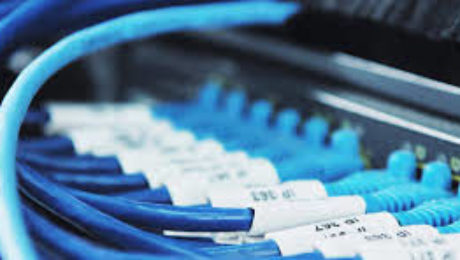Useful and free networking tools that are Windows 10 apps
Networking tools for Windows are typically command-line programs or desktop applications. Under Windows 10, there’s a third format: apps that you download from the online Microsoft Store.
Here we’re highlighting 10 networking tools that are available in the Microsoft Store and can be pinned as tile icons on the Windows 10 Start menu for convenient access. They’re all useful, and they’re all free.
All My LAN
All My LAN lists your network’s IP address, its profile name, and its maximum upload and download speeds. The amount of data that has been sent and received over the network is depicted in two line charts. By moving a slider, you can adjust the charts to represent the amount of data that was transmitted throughout the current day or up to the last 30 days. The charts can be combined to view as one chart.
This app can also scan for any multicast DNS services or UPnP devices that are connected to your network. Clicking the name of a found device or service pulls up information about it, such as its IP address, manufacturer, and product name and model.
Developer: Thoroughsoft
Data Usage
This app can audit a Windows 10 desktop or laptop and report all the mobile data or Wi-Fi networks it’s been connected to. When you run Data Usage for the first time, it may take a while – anywhere from several seconds to a minute or so – as it scours your computer for its record of network connections.
Data Usage presents the amount of data that the computer has consumed on networks as line and pie charts. The line chart tallies the total amount of data for each network your computer connected to over the current month. (This can be changed to show the previous month, the last 7 days or a range between two days you select.) The pie chart breaks down by percentage how much data was used on each network over the selected range of dates. Reports can be exported as CSV files, which break down the amount of data that was used by day.
Data Usage is free but comes with banner ads. The pro version ($1.49) removes them.
Developer: smart_Apps
Network Inspector
This app is comprised of tools that scan information about nearby network signals, including Wi-Fi ones, but its purpose has an emphasis on Bluetooth. When its Bluetooth Watcher tool is activated, Network Inspector continuously updates a list of Bluetooth devices that are within range. The app has a search box you can use to find a Bluetooth device that’s transmitting by entering its device ID into it.
Another tool, an HTTP inspector, scans for and lists any HTTP servers on the local subnet of the network on which your Windows 10 computer runs. You can view the pages that are found, and other information about them, such as their headers.
The developer has made the Network Inspector source available, which can be examined within the app itself. Network Inspector is free but comes with banner ads. To remove them, you’ll have to pay $20. But the price includes full access to the app’s source code for you to use and modify.
Developer: Shipwreck Software
Network Port Scanner
Network Port Scanner is a standard port scanner for checking your network for any ports that are open and revealing the IP addresses they are open to. You can enter a range of IPs and ports for this app to scan, as well as setting a timeout in milliseconds.
Developer: Cenix
Termius
Termius is a full SSH client that lets you connect multiple times to a host, or multitask by connecting to several hosts at once and switching among them. It supports port-forwarding. You can organize your servers under group categories, and pair credentials and servers for quicker access. Source
- Published in Technology

 WhatsApp us
WhatsApp us